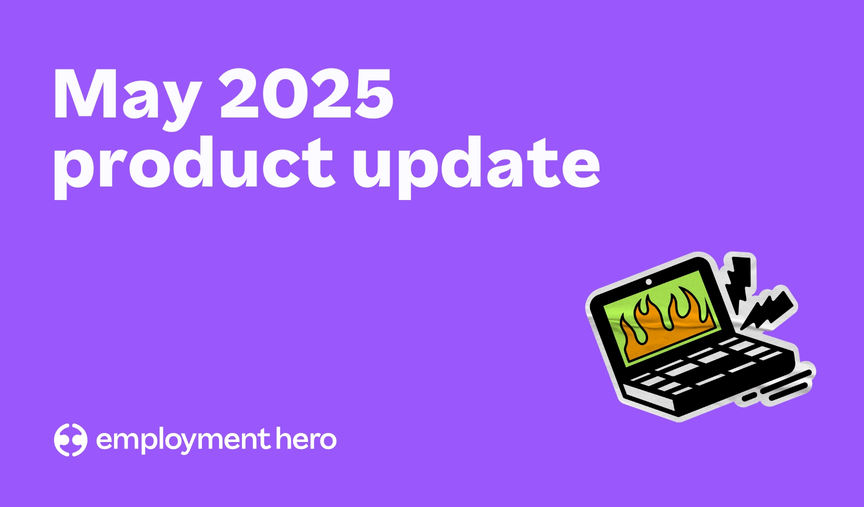How does payment in lieu of notice work in the UK?
Let’s explore how payment in lieu of notice works in the UK and what employers should be aware of.

Perhaps, like many employers, you have nightmares around compliance. Or maybe you’ve suffered too many sleepless nights worrying about the implications of employment law. You might have even been tortured by thoughts about how to protect your business in the event that you need to terminate staff. Offboarding processes can be difficult to navigate, especially when you’re considering payment in lieu of notice, or its rather catchy acronym, PILON. In this post, we’ll break down how payment in lieu of notice works, including when it may be applicable, how it’s calculated, and the legal considerations that SMEs should keep in mind. By the end, we hope that you’ll have a better understanding of what payment in lieu of notice is and when it might be appropriate for your business.
What is payment in lieu of notice?
Payment in lieu of notice, (PILON) occurs when an employee ceases work immediately, but still receives payment for their notice period. Agreements surrounding payment in lieu of notice differ depending on circumstance, but it can include:
- All basic pay that would have been received during the notice period
- Extras like pension contributions or private health care insurance, if they’re in the contract
- Payment for annual leave that would have accrued during the notice period
Is payment in lieu of notice mandatory?
PILON isn’t mandatory – it is up to the employer and employee to decide if it is the best option. However, it is mandatory to abide by the terms of the employment contract. As an employer, you must always fully pay out your employee’s notice period. Employees with more than one month’s service are entitled to a minimum statutory notice period upon termination of their employment. However, if there’s a PILON clause in the employee’s contract, you may be able to provide your employee with payment instead of them working their notice. It is also possible to agree on payment in lieu of notice verbally or in writing, rather than having an employee work their notice. It’s important to remember that terminating a contract with immediate effect, and no notice period or payment, you are likely to be in breach of contract. So before doing anything, make sure you are aware of your legal obligations as an employer.
When could employers provide payment in lieu of notice?
Paying someone to not work may seem like an unusual concept. But there are several scenarios where PILON may be a better option than an employee working their notice.
Dismissal or redundancy
Dismissal procedures, or making someone redundant, is unpleasant. In this situation it might be best for both parties if the employment is ended with immediate effect, and therefore some employers may wish to offer payment in lieu of notice.
Gardening leave
Employers may put employees on gardening leave, which means that they are asked to stay away from the workplace during their notice period. In this situation, an employer may choose to offer PILON while the employee is not required to come to work.
By agreement
Some employment contracts may include a PILON clause, which specifies that the employer has the option to offer payment in lieu of notice instead of requiring the employee to work their notice period. Even without such a clause, the employee may request this. In this situation, the employer may choose this option. In some cases, PILON may not be appropriate, such as when an employee is dismissed for gross misconduct. As a small or medium-sized business owner, it’s important to review employment contracts carefully and seek legal advice if you’re unsure about the appropriateness of offering payment in lieu of notice in a particular situation.
Can an employee decline payment in lieu of notice and request to serve a notice period?
It’s within the employee’s rights to insist on working their notice period, and there may be valid reasons for them to decline PILON. The right to work the notice period is typically considered the default option as this is what is required to lawfully terminate an employment contract, unless the employer and employee mutually agree otherwise or specific circumstances dictate otherwise. If an employee wishes to serve their notice period rather than accept payment in lieu, they should communicate their preference to their employer in writing. The employee must clearly state their desire to work the notice period and provide a proposed end date. The employer can then review the request and decide whether or not to accept it.
How to decide between payment in lieu and notice period
The decision to offer PILON or ask an employee to work their notice period will depend entirely on the circumstances. As an employer, it’s worth considering whether the employee needs to wrap up and hand over any important tasks or projects. It is also important to establish the impact that the decision would have on the wider team, and if it would impact staff morale for a member of the team to leave with immediate effect. Allowing the employee to work their notice period also gives you time to hire a suitable replacement. However, in some circumstances, such as where it is not in either the employer or employee’s best interest to see out the notice period, payment in lieu would be a more appropriate solution. To make the decision, you’ll need to weigh up what’s best for your company and for the employee who will be leaving.
Are there any tax implications for payment in lieu of notice?
Payments in lieu are taxable as earnings under UK tax law. This means that the employee will be required to pay income tax and National Insurance contributions on the amount received as PILON.
How is payment in lieu of notice calculated?
Calculating payment in lieu of notice can be a complex process and the exact method will depend on the terms of the employee’s employment contract. In general, the amount of PILON that an employer is required to pay an employee will depend on the length of the notice period that the employee is entitled to receive. For example, if an employee is entitled to four weeks’ notice under their contract and the employer terminates their employment without providing this notice period, the employer would need to pay the employee the equivalent of four weeks’ pay as PILON. The amount of pay would be based on the employee’s normal rate of pay, which is their basic salary, and may also include other amounts owed such as any unused leave entitlement, bonuses, and other benefits.
The wrap-up
Offboarding and dealing with the legal requirements of a member of staff leaving can be a tricky process. But with the right understanding of the legal requirements and potential risks involved when it comes to payments in lieu, you’ll be well-equipped to make informed decisions. But let’s be real – managing offboarding on your own can be a bit of a headache. That’s where HR information systems (HRIS) or employment software can come in handy.
How can Employment Hero help you manage employees better?
Employment Hero is the world’s first Employment OS (operating system), and our integrated next-gen platform is changing employment for the better. Employment Hero offers everything your business needs, from finding and hiring top talent using SmartMatch to seamlessly onboarding new hires, automating complex payroll, and driving employee engagement and morale, all backed by UK-based expert support. Not only can this save you time and effort, but it can also reduce the risk of errors or omissions that could lead to costly legal disputes. So, if you’re looking to streamline your HR processes and manage compliance, talk to one of our specialists today.
Related Resources
-
 Read more: Product Update: May 2025
Read more: Product Update: May 2025Product Update: May 2025
Follow our May 2025 product update as we share all of the latest and greatest features we’ve released over the…
-
 Read more: The Construction Industry Scheme (CIS): A Guide For Employers
Read more: The Construction Industry Scheme (CIS): A Guide For EmployersThe Construction Industry Scheme (CIS): A Guide For Employers
Discover our Construction Industry Scheme guide. Whether you’re a business owner or HR professional, understanding CIS is key for compliance…
-
 Read more: Dealing with mental health in business—From a HR professional
Read more: Dealing with mental health in business—From a HR professionalDealing with mental health in business—From a HR professional
Discover our in-depth guide to mental health sick leave. We look at what it is, why it is taken and…












